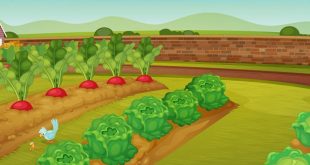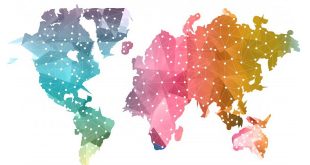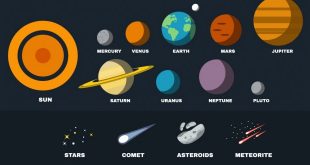Question: Which two layers from the crust of the earth? Answer: The crust is made up of two layers the upper layer is called sail and the lower layer is called sima has rocks rich in silicon and magnesium. Question: What constitutes the hydrosphere? Answer: The hydrosphere oceans, seas, rivers and …
Read More »Major Landforms of the Earth: 6th Social Science
Question: Distinguish – (i) Tectonic and gradational forces, (ii) Erosion and deposition, (iii) Mountain range and mountain system. Answer: (i) Tectonic and gradational: Tectonic: Tectonic forces originate from within the earth. It create irregularities on the surface of the earth. Tectonic or the internal force is responsible for the upliftment and subsidence of the …
Read More »NCERT 6th Class (CBSE) Social Science: Maps and Map Reading – Quiz
NCERT 6th Class (CBSE) Social Science: Maps and Map Reading – Quiz 19 Multiple Choice Questions related to NCERT 6th Class (CBSE) Social Science: Maps and Map Reading – Quiz: There are four direction: North, South, East, West. These are conditional points. Most maps have an arrow (or a line) …
Read More »NCERT 6th Class (CBSE) Social Science: Rotation and Revolution – Quiz
NCERT 6th Class (CBSE) Social Science: Rotation and Revolution – Quiz 19 Multiple Choice Questions related to NCERT 6th Class (CBSE) Social Science: Rotation and Revolution – Quiz: It varies because of the change in seasons, during the summer, days are longer and nights are shorter and during winters, days …
Read More »NCERT 6th Class (CBSE) Social Science: Maps and Map Reading
Question: What is the importance of a scale on a map? Answer: Scale is defined as a relation or ratio of the distance between the same two place on the ground. For example – if 10 km on the ground is shown by 1 cm on a map, the then the …
Read More »NCERT 6th Class (CBSE) Social Science: Rotation and Revolution
Question: What is a leap year? Answer: One revolution takes 365 1/4 days 1/4 day is equal to 6 hours. We take 365 days as a single year and the 1/4 day of four consecutive years is added to the month of February in the fourth year. Thus, every fourth …
Read More »NCERT 6th Class (CBSE) Social Science: Globe: Latitudes and Longitudes
Question: different local time and standard time. Answer: Local time and standard time: Local time: The time according to the longitude of a place is called the local time. Standard: A more or less central meridian passing through a country is selected to give the standard time of the country. Question: What …
Read More »NCERT 6th Class (CBSE) Social Science: Globe: Latitudes and Longitudes – Quiz
NCERT 6th Class (CBSE) Social Science: Globe: Latitudes and Longitudes – Quiz 20 Multiple Choice Questions related to NCERT 6th Class (CBSE) Social Science: Globe: Latitudes and Longitudes – Quiz: The globe is a true model of the earth. The grid formed by latitude and longitudes helps us to find …
Read More »NCERT 6th Class (CBSE) Social Science: The Earth in the Solar System – Quiz
NCERT 6th Class (CBSE) Social Science: The Earth in the Solar System – Quiz 20 Multiple Choice Questions related to NCERT 6th Class (CBSE) Social Science: The Earth in the Solar System – Quiz: The heavenly bodies stars, satellites, asteroids, comets and meteors. The distance between the heavenly bodies in …
Read More »NCERT 6th Class (CBSE) Social Science: The Earth in the Solar System
Question: Briefly define ‘Universe’ and ‘Galaxy’? Answer: The universe is the boundless expanse in which all matter, stars, planets, satellites etc exist. The most accepted Theory related to the birth of the universe is called Big Bang theory. From this matter, many groups of stars were formed which we call …
Read More » Class Notes NCERT Solutions for CBSE Students
Class Notes NCERT Solutions for CBSE Students




